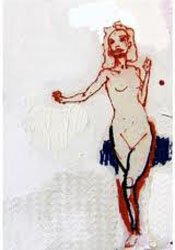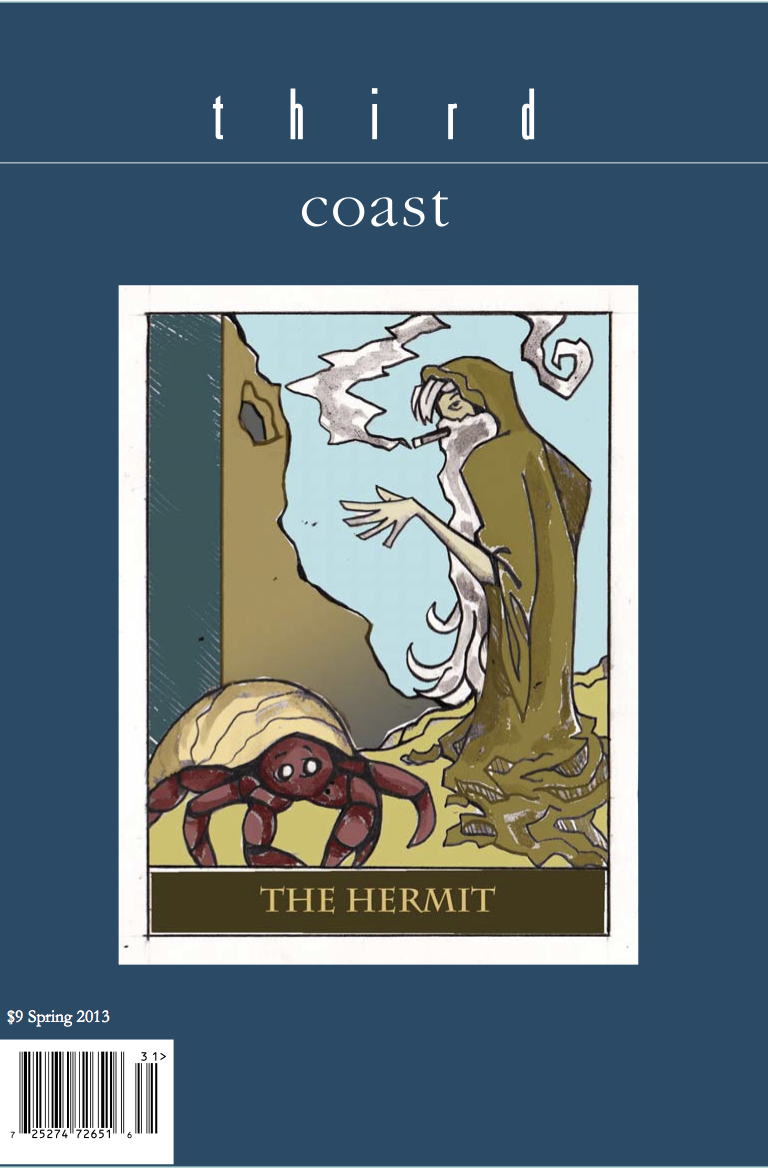Recommended Books
Madame X by Darcie Dennigan
(Canarium Books: 2012.)
Reviewed by Lucy Biederman

Many of the poems in Darcie Dennigan’s brash, flexible, strongly voiced second book, Madame X (Canarium Books, 2012), take the form of hearty chunks of ellipsis-ridden prose. Dennigan uses the prose poem to rethink the ellipsis and the ellipsis to rethink the prose poem. Her ellipses can carry any number of meanings, and it is fascinating to discern the ways in which those meanings come to light on these poems’ narrative surface. Besides using ellipses as a kind of de facto line break, Dennigan uses ellipses to denote a change in speaker or, in the opening of the poem “The Other Forest,” the same speaker addressing a different audience: ‘To insects—sensual lust … was how I began my talk.’ Dennigan’s ellipsis can mean that a word has been elided or interrupted, as in the wonderful poem “The Existentialist,” where the speaker wonders “Okay why does the Columbiney kid have his hand in his breast pock …?” Elsewhere ellipses stand in place of other punctuation marks like periods or commas. They can connote elements of tone like a voice drifting off, pausing, or stuttering, like the speaker’s halting “Why had I … I hadn’t meant … !” in “The Speechmaker.” In poems like “The Shooter” and “The Drought,” which have a strained or particularly complex relationship to reality, the clots of ellipses come to feel particularly restricting, tense, or anxiety inducing; they create a sense of space that after some repetition feels screechingly artificial, desperately limiting.
The italicized quotation that starts “The Other Forest” comes from The Brothers Karamazov, but the sense of its having come from elsewhere is what feels most relevant to Madame X. Most of the poems here include repurposed and re- or mis-contextualized material from other (usually literary) sources. Each of the prose poems begins with an unattributed literary quotation, set off only by an ellipsis. Dennigan could have made these opening quotations into epigraphs, or attributed them in footnotes or endnotes; as it is, their tones and intentions bleed into those of her speakers. “The Contaminants” begins, “Because Nazi venom had seeped into our very thoughts, every true thought was a victory … Speaking of seepage… Something had gotten into the water … some kind of chemical… poison… or just the sun…” Here the seriousness of the opening phrases (from Sartre) contrast with the speaker’s comic, physical “Speaking of seepage.” But Dennigan ratchets back up the stakes of the poem immediately by introducing the suggestion of “poison” in the water. And even if it is “just the sun,” the sinister suggestions of “Nazi venom” and poison weave against those lighter notes and images. In many of these poems, there is a sense of false joy—often connoted by an ellipses and an exclamation point—or, like here, a sense of tonal dissonance that feels deeply unsettling. Even, as in “Whale,” when it is clear the poem is a description of dreams and thus we are prepared for an unsteady relationship to reality, Dennigan finds new ways to shake us, gently and unexpectedly unpeeling reality.
Unlike other recent books in which poets explore the possibilities of a specific form—for example, Karen Volkman’s sound-driven sonnets in Nomina, Sabrina Orah Mark’s dark prose poems in The Babies and Tsim Tsum, or Dennigan’s press-mate Anthony Madrid’s ghazals in I Am Your Slave Now Do What I Say—Dennigan in Madame X takes some notable departures from her chosen form. That decision allows Dennigan to effect a wider variety of tones, sounds, and types of speaker—many of these poems are several pages long. In the poem “Out of the Ether,” Dennigan plays with two voices, one cynical, resisting transport, the other high lyric. The masterful “Some Antics” builds on its aphoristic stanzas, mounting toward a gorgeously rich conclusion that feels both spare and lush, hopeful and bereft. The poem also includes a moment that helped me read the books’ many ellipses:
I prefer and so on to etcetera.
The latter goes by too quickly to convey sub specie aeternitatis with accuracy.
And fails to suggest hope of an end. If you trip over and so on you’ll get soon.
Perhaps Dennigan’s ellipsis can be read as an “and so on”: a wrapping-up that is also an upcoming, and end becoming a beginning.
Another theme of this wonderful book is naming and re-naming. In its first poem, “The Youngest Living Thing in L.A.” the speaker’s baby is christened again and again; a fountain becomes a mountain, then turns back into a mountain. With her shifting (and shifty) tones and settings, Dennigan undermines her poems’ internal sense of reality. The giant X that demarcates each section break reads to me like an error messages or like when the TV screen suddenly fills with static—another new shock to the system.
In “The Job Interview,” Dennigan writes in the bold tradition of great American dramatic monologuists like Richard Howard, Frank Bidart, and Robert Frost. Like those poets, Dennigan has an excellent ear for the cadences and subtexts of contemporary speech, which she conveys through the earnest tale of a flawed sacristy worker. Confessing to having used incense as deodorant, she says, “The smell of the incense made me feel as if I were leading a solemn procession. It also made me feel sort of sexy?” In the midst of these moments of real humor, Dennigan achieves beauty:
I’m so sorry,
so sorry to have a body.But how else.
I don’t have heaven.
I don’t have clouds even.
One of the great strengths of this fresh, inventive book is its ranging creativity, the philosophy, history, and geography across which Dennigan creates believable or convincingly unbelievable selves, and, the ways in which—as, with, and through those selves—she speaks.
***
Darcie Dennigan is the author of Corinna A-Maying the Apocalypse (2008), winner of the Poets Out Loud prize, and Madame X (2012). Her awards include the 2007 Discovery/"The Nation" Prize, the Cecil Hemley Award from the Poetry Society of America and a Rhode Island State Council of the Arts Poetry Fellowship. She is also a cofounder of and teacher for Frequency Writers: A Writing Community for Providence & Beyond, based in Providence, Rhode Island, where she lives.
Lucy Biederman (http://lucybiederman.blogspot.com/) is a doctoral student in Literature/Creative Writing at the University of Louisiana. She is the author of The Other World (Dancing Girl Press, 2012), and another chapbook forthcoming from Grey Book Press. Her poems are forthcoming in RHINO, Handsome, The Literary Review, The Tusculum Review, Konundrum Engine, Bone Bouquet, and other journals. She tumblrs at http://lucybiederman.tumblr.com/.
